Water quality is crucial for health, hygiene, and overall well-being. The water you use for drinking, cooking, and cleaning can significantly impact your family’s health. Contaminants such as chlorine, lead, pesticides, and bacteria can be present in tap water, making it essential to take steps to improve water quality in your home. Enhancing water quality involves understanding potential contaminants, choosing the right filtration systems, and maintaining your water supply.
Identifying Common Water Contaminants
Before improving water quality, it’s essential to understand the common contaminants that can affect your water supply. These contaminants can come from various sources, including natural deposits, industrial processes, and agricultural runoff.
Chlorine: Used to disinfect water, chlorine can leave an unpleasant taste and odor.
Lead: Often found in older pipes and plumbing fixtures, lead can cause severe health issues, especially in children.
Pesticides: Agricultural runoff can introduce pesticides into water supplies, posing health risks.
Bacteria and Viruses: Microbial contaminants can cause illnesses and are often found in untreated or improperly treated water.
Hard Water Minerals: Calcium and magnesium can cause scale buildup in pipes and appliances, affecting their efficiency.
Choosing the Right Water Filtration System
Investing in a water filtration system is one of the most effective ways to improve water quality. Different types of filtration systems address various contaminants, so it’s crucial to choose the one that best suits your needs.
Activated Carbon Filters: These filters are effective at removing chlorine, pesticides, herbicides, and volatile organic compounds (VOCs). They can improve taste and odor but are ineffective against minerals or microbes.
Reverse Osmosis Systems: These systems remove a wide range of contaminants, including lead, nitrates, pesticides, and bacteria. They are ideal for households with serious water quality issues but require regular maintenance and can be expensive.
Ultraviolet (UV) Purifiers: UV purifiers are effective at killing bacteria and viruses. They are often used in conjunction with other filtration systems to provide comprehensive water treatment.
Water Softeners: These systems are designed to remove hard water minerals like calcium and magnesium. They are not intended to remove other contaminants but can prevent scale buildup in pipes and appliances.
Whole House Filtration Systems: These systems filter water at the point of entry, ensuring that all the water in your home is treated. They can be customized to address specific contaminants and provide comprehensive water treatment.
Regular Maintenance of Filtration Systems
Proper maintenance of your water filtration system is crucial to ensure its effectiveness and longevity. Regular maintenance involves replacing filters, cleaning components, and monitoring system performance.
Replace Filters Regularly: Follow the manufacturer’s guidelines for replacing filters. Overused filters can become clogged and ineffective, allowing contaminants to pass through.
Clean System Components: Regularly clean the components of your filtration system, such as the faucet, tank, and tubing. This prevents the buildup of bacteria and other contaminants.
Monitor Performance: Periodically test your water to ensure the filtration system is working correctly. Testing kits are available that can check for common contaminants.
Implementing Additional Water Quality Measures
In addition to installing a filtration system, there are several other steps you can take to improve your home’s water quality.
Regularly Test Your Water: Testing your water regularly can help you identify potential issues early. You can purchase home testing kits or hire a professional to conduct a thorough analysis.
Flush Your Pipes: Running your taps for a few minutes before using water can help flush out contaminants that may have built up in the pipes.
Use Cold Water for Cooking and Drinking: Hot water can dissolve contaminants more quickly than cold water. Always use cold water for cooking and drinking, and heat it if necessary.
Maintain Your Plumbing System: Regular inspections and maintenance of your plumbing system can help prevent issues like lead contamination. Replace old pipes and fixtures if necessary.
Install a Water Softener: If you have hard water, consider installing a water softener to reduce mineral buildup. This can improve the efficiency of your appliances and the quality of your water.
Benefits of Improved Water Quality
Enhancing your home’s water quality offers numerous benefits beyond health. Clean, contaminant-free water can improve the taste and odor of your water, making it more enjoyable to drink and cook with. Additionally, better water quality can extend the lifespan of your plumbing system and appliances by preventing mineral buildup and corrosion.
Health Benefits: Clean water reduces the risk of waterborne diseases and exposure to harmful chemicals. It ensures that the water you and your family consume is safe and healthy.
Improved Taste and Odor: Removing chlorine, sulfur, and other contaminants can significantly improve the taste and smell of your water, making it more pleasant to drink.
Extended Appliance Lifespan: Reducing mineral buildup and corrosion can extend the life of your water heater, dishwasher, washing machine, and other appliances that use water.
Environmental Benefits: By improving your water quality, you reduce the need for bottled water, which in turn reduces plastic waste and your environmental footprint.
Improving your home’s water quality is an essential step toward ensuring the health and well-being of your family. By understanding common contaminants, choosing the right filtration system, and maintaining your water supply, you can enjoy clean, safe, and great-tasting water. Regular testing and additional measures like using cold water for consumption and maintaining your plumbing system further enhance water quality. With these tips, you can take control of your home’s water quality and enjoy the many benefits that come with it.

